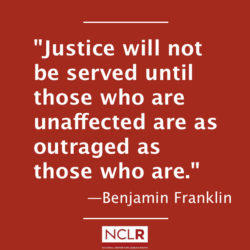 “…Later that night I held an atlas in my lap
“…Later that night I held an atlas in my lap
ran my fingers across the whole world
and whispered
where does it hurt?
it answered
everywhere
everywhere
everywhere”
—Warsan Shire
Two days after a sniper killed five Dallas police officers, this poem, by expat Somali poet Warsan Shire, who came to world’s attention when her words were spoken on Beyonce’s visual album “Lemonade,” showed up in my Twitter feed.
That was three days after the killing of Philando Castile in Minneapolis, which occurred one day after the killing of Alton Sterling in Baton Rouge, which followed by 25 days the body blow that was Orlando. Forty-nine of our mostly Latinx brothers and sisters died that night. In a time of nonstop shock and horror, Shire’s words echoed through me. And not even one week passed before we grimly witnessed the killing of eighty-four in Nice, France. And three days after that, the killing of three Baton Rouge police officers.
So much death. So much pain. In the span of just 37 days.
Yes, it hurts everywhere. We are all feeling shattered and broken. We know we need a change unlike anything we have ever imagined. What is clear here, in this country, is that the staggering and entrenched injustice that has led to the countless and needless deaths of men and women of color must be upended. Despite the demand and the pleas that Black Lives Matter, these killings suggest otherwise. This must change.
And it is also clear that striking back at police and killing officers is a repugnant and rightly condemned response, which in fact adds fuel to the cycle of deadly violence. This must stop.
And then in the midst of this national crisis on race and policing comes the Republican National Convention, which wholly fails to address this crisis with anything substantive or meaningful but instead mocks and blames Black Lives Matter, stokes race-based fears and scapegoats the most vulnerable. As if that were not enough, the delegates ratify the most vicious anti-abortion and anti-LGBTQ platform in history. The platform endorses a constitutional amendment banning abortion, calls for “Supreme Court justices who will reverse decisions in favor of abortion rights,” condemns women’s health organizations, and opposes “the Supreme Court’s recent decision to strike a Texas anti-abortion law.”
It also endorses the torture known as conversion therapy, supports anti-trans bathroom bills, trashes our U.S. Supreme Court marriage victory by saying marriage should be between and man and a woman, and insults millions of families by insisting that children should only be raised with a married mother and father.
If you did not believe it before, know it now: We are in the midst of a full-throated backlash against our lives and our common humanity.
And yet in the middle of this storm of conflict, disruption, misogyny, toxic racism and blatant homophobia, I have hope. More than at any other time, it is clear to me, and millions of others who seek justice and who wish to elevate our common humanity, that our unity can bring into being the change we so desperately need. More than any other time it is clear that we are in this together.
Dismantling patriarchy, subverting white supremacy, eroding racism, and ending homophobia and transphobia will not be easy, but imagine if we succeed even a little bit. There are policy and systems changes—from voting out lawmakers who traffic in bigotry to demanding and seeing through systemic reforms in policing, immigration, education and our broken criminal justice system—that could help erode the systems that demean and subjugate.
Whatever your priority is, whether it’s a ban on high-magazine weapons, police accountability, reproductive justice, safety for queer youth, LGBTQ equality, racial justice or economic and education changes that break the cycle of poverty, now is the time to engage, demand, roil our leaders, and displace the haters.
We are in the midst of a major global disruption. Unmoored and unbalanced. But in this deep unease there is opportunity. Finally we may be at the tipping point Benjamin Franklin had in mind when he said: “Justice will not be served until those who are unaffected are as outraged as those who are.”
Let’s harness that outrage and serve justice. We are limited only by the strength of our will.









